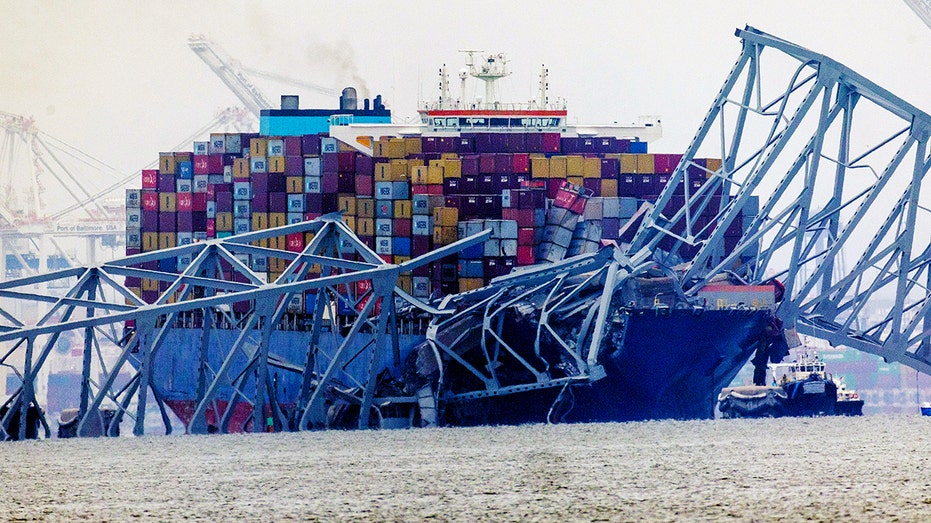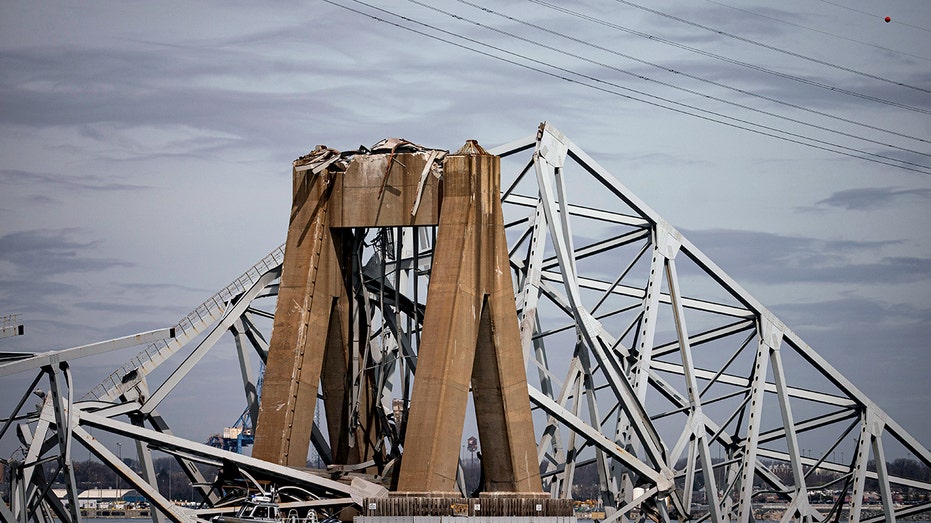Economic impact from Baltimore bridge collapse will be long-lasting, trade group warns
Nearly 4,900 trucks traveled the Francis Scott Key Bridge each day, carrying $28 billion in goods annually
Maryland governor says no bodies recovered yet after Baltimore bridge collapse
Maryland Gov. Wes Moore joined 'Fox & Friends' to discuss the latest developments in the Baltimore bridge collapse as officials continue the recovery effort for victims presumed dead.
The collapse of the Francis Scott Key Bridge, a vital passage for thousands of trucks per day, will do "significant" economic damage not only to the region but the entire country, industry experts and Gov. Wes Moore warned.
The "Key Bridge and Port of Baltimore are critical components of our nation’s infrastructure and supply chain" and the collapse "will have significant and long-lasting impacts on the region," Sean McNally, spokesperson for the American Trucking Association (ATA), told FOX Business.
The association estimated nearly 4,900 trucks traveled the bridge every day, carrying about $28 billion in goods every year.
As a result, "trucks moving hazardous materials will now be subject to roughly 30 miles of detours around the City of Baltimore because they are prohibited from using the city’s tunnels," McNally said. "This will add significant cost in time, fuel and delays for trucks traveling through the region, on top of the disruption that a closure of the Port of Baltimore will inflict on our economy."
FRANCIS SCOTT KEY BRIDGE COLLAPSE: FAST FACTS ABOUT THE PORT OF BALTIMORE

The cargo ship Dali sits in the water after running into and destroying Baltimore's Francis Scott Key Bridge March 27, 2024, in Baltimore. (Tasos Katopodis/Getty Images / Getty Images)
The bridge that feeds into the Port of Baltimore collapsed into the Patapsco River early Tuesday morning after a large container ship struck a support column. Officials have launched a recovery effort for the workers on the bridge presumed dead.
Moore said Wednesday there is no indication any civilians were on the bridge at the time of the accident.
MARYLAND: SHIP HITS FRANCIS SCOTT KEY BRIDGE, CAUSING IT TO COLLAPSE
Vessel traffic into and out of the Port of Baltimore has been closed until further notice as recovery and cleanup efforts are underway. That port, according to several reports, contributes to about $15 million in economic activity every day.
Moore told "Fox & Friends" during an interview Wednesday the incident is "costing the entire country."
"We are talking about a port that's responsible for over 51 million tons of foreign cargo. That's the largest in the country," Moore said.
The port is the busiest in the U.S. for car shipments, handling more than 750,000 vehicles in 2023, according to data from the Maryland Port Administration. It is also the largest U.S. port by volume for handling farm and construction machinery, as well as agricultural products.
It handled a record amount of cargo last year, making it the 20th biggest port in the nation ranked by total tons, according to the Bureau of Transportation Statistics.

The Francis Scott Key Bridge after its collapse into the Patapsco River in Baltimore March 26, 2024. (Al Drago/Bloomberg via Getty Images / Getty Images)
GET FOX BUSINESS ON THE GO BY CLICKING HERE
"The Port of Baltimore is responsible for cars, heavy vehicles, agricultural equipment. … This is not just going to impact Maryland, this is impacting the farmer in Kentucky. It's impacting the auto dealer in Michigan," the governor continued.
Moore said rebuilding the bridge and reopening the port to ship traffic as soon as possible are key to getting "our economic engine going again."
For now, Jean-Paul Rodrigue, a professor in the Department of Maritime Business Administration at Texas A&M University–Galveston, told FOX Business companies with cargo bound for Baltimore are working to reroute those shipments to other ports with the capacity to handle them.
Ford and General Motors each announced they are working to reroute auto shipments scheduled to go to Baltimore and said the impact would be minimal.
FOX Business' Eric Revell and Michael Dorgan contributed to this report.





















